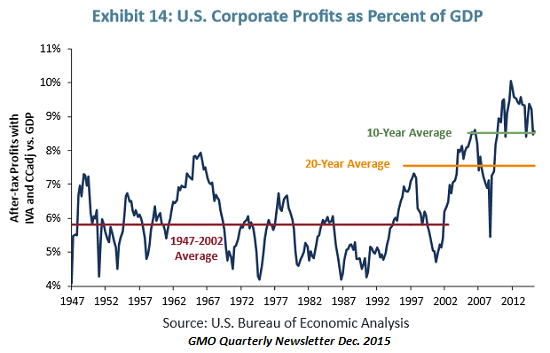Basic Income for Everyone?
Proponents claim Basic Income can be paid by redirecting existing welfare programs, but a quick review reveals this as nonsense.
Finland made the news recently by proposing a pilot program of guaranteed income for all, also known as Universal Basic Income: Desperate Finland Set To Unleash Helicopter Money Drop To All Citizens.
The goal is two-fold: by providing every household with a minimum income, regardless of what other income the individuals might earn, the program does two things: it provides everyone enough money to get by and it removes the disincentive to work inherent in the conventional welfare model: in the current model, recipients who earn money lose their benefits, leaving them no better off if their earnings are modest.
The Finnish proposal offers a basic income of around $850 to $900 per month, roughly $10,000 per year.Its head-count and payroll expenses immediately decline, of course, but so do its profits: as robots and software become cheaper, what’s to stop Company A’s global competitors from buying the same robots and software?
The reality is the tools of automation are commodities, rapidly falling in cost and available everywhere. The scarcity value of these tools is effectively near-zero, and as economist Michael Spence pointed out, profits and value only flow to what’s scarce.
As Erik Brynjolfsson, Andrew McAfee, and Michael Spence explain in their 2014 article New World Order: Labor, Capital, and Ideas in the Power Law Economy, capital and labor have very little scarcity value: both are in over-supply. This is why capital earns effectively near-zero return, and why the value of conventional labor is declining.
Automation, capital, labor and everything that can be commoditized globally has near-zero scarcity value, and hence near-zero profitability. As automation eliminates jobs, it also slashes profits. rather than boost profits as Basic Income proponents anticipate, automation reduces profits along with payrolls.
Thus the more realistic projection is for record corporate profits to return to their historical average of around 5%-6% of GDP, which would mean profits falling from $1.9 trillion to $1 trillion.

So let’s run some numbers. The federal government currently spends about $3.8 trillion and collects about $3.3 trillion in tax revenues; it borrows the difference ($500 billion) by selling Treasury bonds–in effect, borrowing from our grandchildren to fund our benefits today.
This is politically expedient, but morally and fiscally bankrupt.
The post Basic Income for Everyone? appeared first on LewRockwell.
Leave a Reply